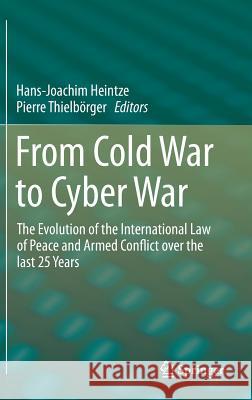From Cold War to Cyber War: The Evolution of the International Law of Peace and Armed Conflict Over the Last 25 Years » książka
topmenu
From Cold War to Cyber War: The Evolution of the International Law of Peace and Armed Conflict Over the Last 25 Years
ISBN-13: 9783319190860 / Angielski / Twarda / 2015 / 271 str.
From Cold War to Cyber War: The Evolution of the International Law of Peace and Armed Conflict Over the Last 25 Years
ISBN-13: 9783319190860 / Angielski / Twarda / 2015 / 271 str.
cena 402,53
(netto: 383,36 VAT: 5%)
Najniższa cena z 30 dni: 385,52
(netto: 383,36 VAT: 5%)
Najniższa cena z 30 dni: 385,52
Termin realizacji zamówienia:
ok. 22 dni roboczych
Bez gwarancji dostawy przed świętami
ok. 22 dni roboczych
Bez gwarancji dostawy przed świętami
Darmowa dostawa!
From Cold War to Cyber War











